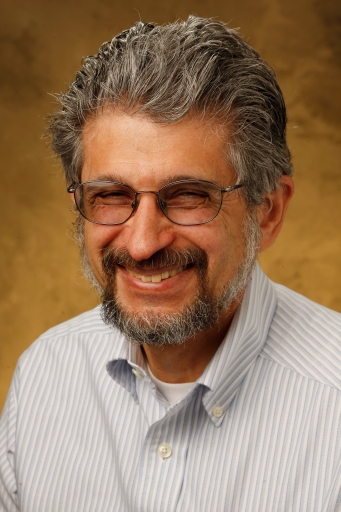
Despite one of the worst worldwide economic crises in the past half-century, support for democracy among those in Latin America and the Caribbean has not been eroded, according to the results of the latest AmericasBarometer survey.
The survey, conducted by the Latin American Public Opinion Project at Vanderbilt University, also found democratic attitudes and values generally remained strong in the Americas, with almost 60 percent of respondents indicating they are satisfied or very satisfied “with the way democracy is working in their countries.”
“We found that in spite of the enormous economic crisis, Latin Americans remain committed to democracy,” said Mitchell A. Seligson, Vanderbilt University Centennial Professor of Political Science and LAPOP director. “We found that people who felt their governments, their presidents, their legislatures and so on were handling the crisis well, were protecting them from the worst of the crisis, through counter-cyclical policies, through pro-poor policies, those people who felt their governments were helping their countries through difficult times are the ones who had the biggest boost in their democratic values.”
Survey’s scope
The Latin American Public Opinion Project at Vanderbilt University conducted more than 40,000 interviews in 26 nations in 2010. It covered every independent country in mainland North, Central and South America, and all of the larger, and some of the smaller, countries in the Caribbean, with the exception of Cuba. The prior round of the AmericasBarometer was conducted in 2008.
Seligson shared the findings of the latest AmericasBarometer survey Jan. 20-21 with presentations before a number of groups in Washington, D.C., including the U.S. State Department, U.S. Agency for International Development (USAID), Inter-American Dialogue and the World Bank.
Seligson said the survey yielded surprising results, noting that preparations for the 2010 survey began in 2008 “when we were in the depths of the crisis, and we had in mind what happened in Europe in the thirties when economic crisis seemed to be directly linked to the downfall of half the democracies of Europe.”
in the depths of the crisis, and we had in mind what happened in Europe in the thirties when economic crisis seemed to be directly linked to the downfall of half the democracies of Europe.”
Considering “Latin America’s historically tenuous relationship with democracy,” Seligson said the researchers thought they might find an erosion of democratic support. They were pleasantly surprised by “the stability and the improving values and norms in the region.”
Risks to democracy exist
While the scholars found no nation except Haiti where democracy was seriously at risk, they did find two areas of vulnerability that need to be addressed: crime and corruption.
“We uncovered very serious problems in terms of levels of crime, crime victimization – violent and nonviolent crime – and we also uncovered a lot of fear of crime. We found that people who are afraid of crime are those who are less supportive of democracy,” Seligson said.
[lquote]”To the extent to which crime – gang-related crime, drug-related crime, narco-crime – all kinds of crime are increasing in the region … those countries are going to have serious problems in maintaining citizen support for a system which is leaving them unprotected and vulnerable[/lquote],” he said.
The survey found that the degree of corruption varies considerably across the region, with corruption very infrequent in some countries and extremely high in others.
The researchers focused on corruption victimization and asked people such questions as whether they had to pay a bribe to a policeman or public official, whether they had to pay a bribe to arrange for a child to be accepted or stay in school or in order to get medical care for themselves or a member of their family in the public health system. Respondents in those countries where corruption was highest were most likely to say that they had doubts about the legitimacy of their country’s system of government.
Who’s to blame for crisis
As for the cause of the economic crisis, respondents more frequently placed blame on their own nation’s previous or current administrations, rather than wealthy industrial nations.
“Even though most economists would argue that the crisis began with the serious meltdown of the financial systems in the advanced industrial nations, citizens of Latin America and the Caribbean do not see those nations as the primary cause of the crisis,” Seligson said.
In addition to gauging changes in support of democracy, the survey assessed who within the Americas has been most affected by the crisis.
Those findings include:
- Nearly 30 percent of households in the Americas have seen at least one of their family members lose their jobs. Unemployment was especially high in Mexico and Colombia, where almost 40 percent of respondents reported that someone in their household lost his or her job in the period 2008-2010.
- The economic crisis has not affected all citizens equally. “Reduction of income has been more widespread among citizens living in rural areas, and especially among those within the lowest wealth brackets, than among their urban and wealthier counterparts.”
The AmericasBarometer is conducted every two years by the Latin American Public Opinion Project at Vanderbilt University. LAPOP was founded in the 1970s by Mitchell A. Seligson, Vanderbilt University Centennial Professor of Political Science and LAPOP director, to conduct scientific surveys of Latin American citizens about their opinions and behaviors related to building and strengthening democracies. It functions as a consortium of academic partners throughout the hemisphere. Major funding comes from the United State Agency for International Development, the Inter-American Development Bank and the United Nations Development Programme.